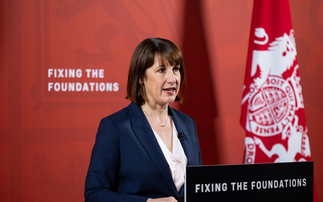UK dividend investors are revising yield expectations downwards after sterling reached its highest level against the US dollar since 2008.
This year has seen sterling gradually strengthen, with £1 buying $1.72 on 2 July 2014, compared to $1.68 a month earlier, and $1.52 a year previously. The last time sterling bought more than $1.72 was in July 2008.
More than a fifth of FTSE 100 companies report in dollars, according to Capita, while nine of the UK’s largest 20 dividend payers base their payouts in US currency. Dollar-denominated dividend payers include HSBC, Shell, and AstraZeneca.
A stronger pound has had an impact both on company earnings and the size of the dividends paid out when converted back into sterling, according to UK equity income managers. Based on these factors, Shore Capital has revised its 2014 dividend growth expectations down from roughly 8% at the start of the year to 5% today.
Henderson Global Care UK Income fund manager Andrew Jones said the challenging sterling situation means dividend growth may be a few percentage points lower than previously anticipated.
He said investors must look through “cosmetic” currency situations: “In my own portfolio, you just accept it. As long as companies are trading well, the market tends to be relatively grown up about looking through these kinds of things.”
While sterling’s rise against the dollar accelerated this month, income investors have been quick to sound the alarm about the effects on dividends. In their latest annual report, Artemis Income fund managers Adrian Frost and Adrian Gosden reported the fund’s dividend was below last year’s level due to the strength of the currency.
Factors influencing the strength of sterling include signs the Bank of England may raise interest rates, and the pace of the UK recovery, according to managers.
Old Mutual Equity Income fund manager Stephen Message said: “If things stay where they are going into the full-year results, it will provide a bit of a headwind for companies. Roughly 70% of revenues of companies listed on the UK market derive their earnings from abroad.
“Coming into this year, expectations were for perhaps 6% dividend growth. If sterling is a headwind, it has the potential to knock a couple of percentage points off that figure.”
Income investors can still beat dividend expectations by focusing on domestically-focused companies such as ITV, he added.
But Message also suggested sterling may waver in the coming months: “The Scottish referendum and the general election are both uncertain events which may cause sterling to weaken a bit,” he said.
PSigma Income fund co-manager Eric Moore said his focus is on beating inflation in a trickier income environment: “The outlook for dividends has got a bit tougher over this year. We have continued to receive downgrades to earnings expectations and dividends.”
Nevetheless, equity income still offers a better return than cash or gilts, he added.














